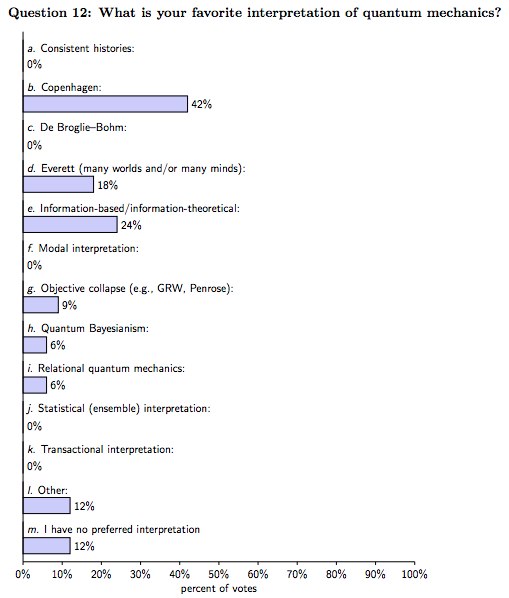As always, it is not just me who saying is. It is true, that some physicists, such as Lawrence Krauss, define nothing as an unstable quantum vacuum that contains no particles. But this is incompatible with the philosophical definition of nothing, since it can be defined by certain properties, and is governed by physical laws. Even many philosophers criticize physical explanations of how the Universe arose from nothing, claiming that they merely beg the question...
You don't have to act like I broke some news to you. Nihil fit ex nihilo is an age old common sense philosophical expression of a thesis first argued by Parmenides.
Don't try to pin this on philosophers! First, there is no such thing as "the philosophical definition of nothing". Some philosophers may have tried to define it, but I don't think there's any agreed definition, and if there were, so what? Just because philosophers have said something doesn't make it true.
As for "nihil fit ex nihilo", the fact that it's age-old, and common-sense, is absolutely irrelevant to its truth. Common sense covers the phenomena of everyday experience, because that's what our brains evolved to deal with. Our brains did not evolve to generate true principles about the origins of the universe. And what seems common sense to us in the phenomenal sphere doesn't apply to other spheres, as the quantum mechanics you keep citing amply demonstrates. If you think Parmenides is an authority on this, I'd say he's superseded by Kant, who argued persuasively that you simply cannot take principles - even general and unchanging principles - from the empirical, phenomenal realm and assume that they apply to the metaphysical realm (if any) beyond that. That means that even if it's true that (e.g.) nothing comes from nothing in our experience, you've no grounds at all for saying that this is an unbreakable principle that applies to things that are necessarily beyond our experience, such as the origins of the universe itself.
Indeed the very notion of causation as a Real Thing at all was pretty much wrecked by Hume, and as far as I know hasn't ever really recovered from his demolition job. Even if you don't accept his conclusions, it still remains the case that anything you can say about "causation", which is what this whole thing is really about, is simply an interpretation of a set of observations made about the world as you experience it; and that interpretation is, furthermore, determined by the way your brain is set up. We have evolved to believe in a certain and rather fuzzy notion of "causation" because this way of perceiving the world proved reproductively useful to us. That gives us very little basis to assume reality matches our notion, let alone that it's an inviolable principle that transcends the physical realm itself.
What seems a common sense, inviolable principle to one generation may turn out not to be. In the seventeenth century it was taken for granted that causation must, necessarily, occur only between objects that are physically touching (directly or indirectly). The notion of causation at a distance across a vacuum was taken to be
necessarily impossible by definition. Then Newton came along with his gravity and his empty space. Now people have no problem with causation at a distance. Personally I have no problem at all with the notion that something might come from nothing. The fact that Parmenides, who knew absolutely nothing about reality beyond what he saw around him, might have thought otherwise is neither here nor there.

 ?
?